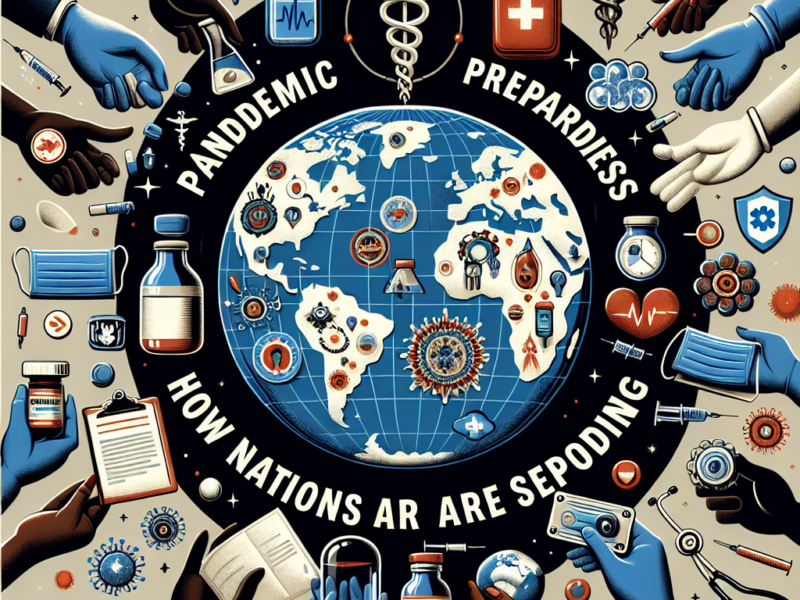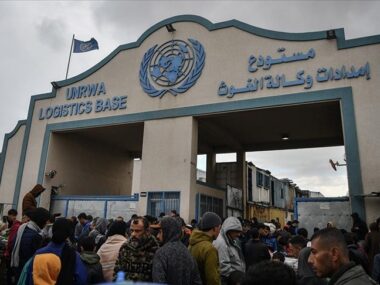The COVID-19 pandemic has brought unprecedented challenges and highlighted the vulnerabilities of global health systems. As countries emerge from the pandemic’s shadow, a critical analysis of the lessons learned has guided nations in reshaping their approach to future pandemic preparedness. This article explores those lessons, the response strategies being implemented, and how nations are working to fortify their defenses against potential health crises.
Lessons Learned from COVID-19
1. Importance of Early Detection and Surveillance
One of the most significant lessons from the COVID-19 crisis is the value of rapid detection and surveillance systems. Early identification of outbreaks allows for timely intervention. Countries like South Korea have demonstrated the effectiveness of extensive testing, contact tracing, and real-time data sharing, which helped to control the virus’s spread in the early phases of the pandemic. Nations are now investing in advanced surveillance technologies, such as genomic sequencing and artificial intelligence, to enhance their monitoring capabilities.
2. Integration of Public Health and Technology
The pandemic showcased the potential of technology in bolstering public health responses. Mobile applications for contact tracing, digital health monitoring, and vaccine distribution have been critical tools in flattening the curve. Consequently, governments are now prioritizing technology integration in health infrastructures. Investments are flooding into digital health initiatives that enable remote consultations, e-health record management, and telemedicine, providing a robust platform to respond to future health emergencies.
3. Global Collaboration and Information Sharing
COVID-19 underscored that infectious diseases know no borders. The crisis prompted discussions around global collaboration and the need for coordinated efforts in health crises. Organizations like the World Health Organization (WHO) have gained renewed attention in advocating for information sharing and transparency among nations. Countries are now exploring agreements on data sharing and joint responses to emerging health threats, recognizing that a united front is essential to tackle pandemics effectively.
4. Strengthening Health Infrastructure
Many health systems were overwhelmed during the pandemic due to a lack of resources and preparedness. Countries have recognized the urgency of investing in healthcare infrastructure, including hospitals, supply chains, and workforce capacity. Nations like Germany and New Zealand are ramping up their healthcare budgets, focusing on expanding hospital capacity, improving stockpiles of personal protective equipment (PPE), and establishing rapid response teams trained to handle future outbreaks.
5. Addressing Health Inequities
The pandemic highlighted glaring disparities in health outcomes among different populations. Vulnerable communities faced greater risks, often due to underlying health conditions, socioeconomic barriers, and limited access to healthcare services. Recognizing these inequities, countries are now implementing strategies aimed at inclusive healthcare systems that prioritize vulnerable populations. Public health initiatives are increasingly focusing on social determinants of health to ensure equitable access to services and resources.
How Nations Are Responding
1. Policy Reforms and Preparedness Plans
In response to the lessons learned, many nations have instituted comprehensive policy reforms aimed at strengthening their pandemic preparedness plans. These reforms often include updating emergency response frameworks, instituting regular training exercises for health professionals, and enacting legislation that allows for swift resource mobilization in crises.
2. Vaccine Development and Distribution
The urgent need for vaccines during the pandemic has led to the establishment of public-private partnerships for rapid vaccine development and distribution. Countries like the United States, through initiatives like Operation Warp Speed, have invested heavily in vaccine research and development. Furthermore, nations are exploring new vaccine technologies such as mRNA and viral vector platforms to expedite future responses.
3. Building Local Manufacturing Capabilities
To reduce dependence on global supply chains, nations are prioritizing local manufacturing capabilities. Governments are incentivizing domestic production of medical supplies and pharmaceuticals to ensure a swift response to future health crises. Countries such as India and Rwanda have taken significant steps towards becoming vaccine manufacturing hubs, aiming to enhance their self-sufficiency.
4. Enhancing Public Engagement and Education
Public trust and community engagement play a crucial role in the success of health interventions. Governments are increasingly focusing on public education campaigns to raise awareness about vaccine safety, health practices, and disaster preparedness. Engaging communities in health discussions has become a fundamental aspect of pandemic preparedness, ensuring that public health measures are widely understood and embraced.
5. Fostering Innovation and Research
To prepare for future pandemics, nations are encouraging innovation in health research. Investment in biotechnology, virology, and public health research is being prioritized, fostering a culture of innovation that aims to tackle infectious diseases more effectively. Collaborative research efforts, both domestically and internationally, are becoming more commonplace, further enhancing the capability to respond to health threats.
Conclusion
The lessons learned from the COVID-19 pandemic have prompted a radical reevaluation of how nations approach health crises. While challenges remain, the global community is increasingly committed to building a more resilient and equitable health infrastructure. By investing in technology, strengthening collaboration, enhancing public health systems, and addressing health disparities, countries can better prepare for future pandemics, ultimately safeguarding the health and well-being of populations worldwide.











